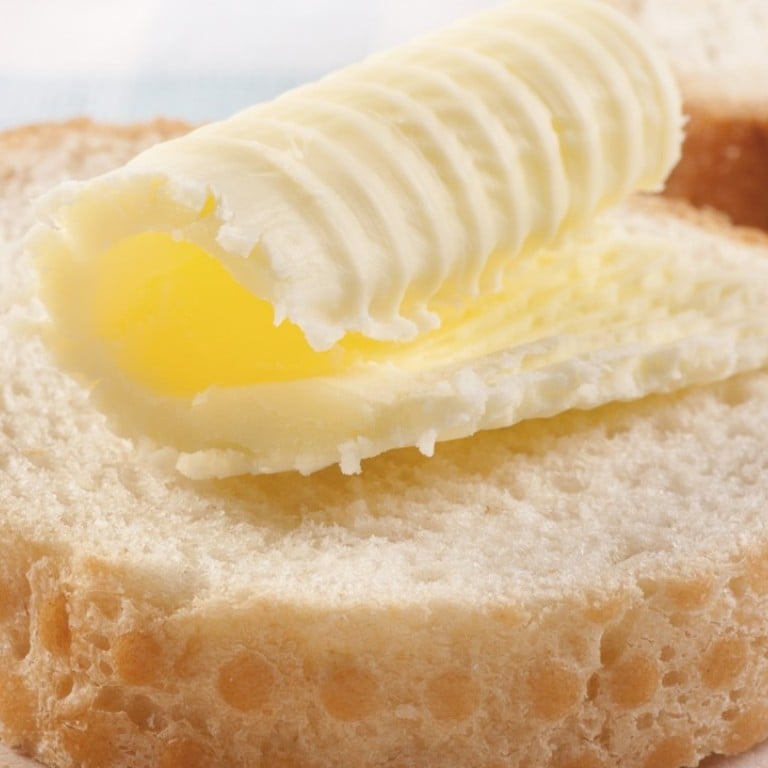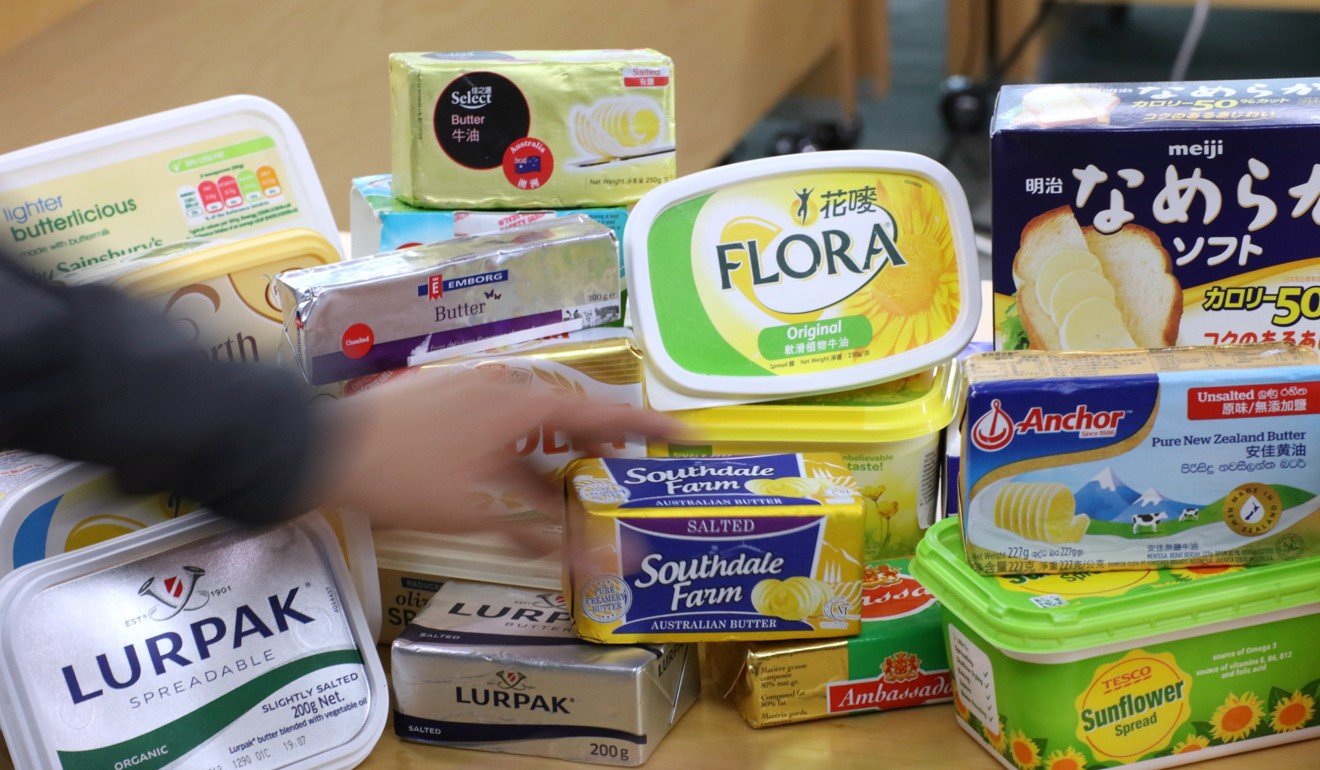
What is lurking in your margarine and will it really give you cancer?
After Hong Kong’s consumer watchdog sounded a warning over levels of glycidol and 3-MCPD in spreads sold locally, we take a closer look at what they are and the risks they pose
The Consumer Council found two “possibly carcinogenic” compounds, glycidol and 3-MCPD, in the spreads. Its tests revealed that 18 margarine products contained glycidol and 16 harboured 3-MCPD. Both are “possibly carcinogenic”, while 3-MCPD can cause kidney problems and male infertility.
Hong Kong does not regulate safe limits of the substances in food.
A Centre for Food Safety spokesman said on Thursday it had tested 330 food samples for 3-MCPD between 2011 and last year and that all test results were satisfactory.
“The potential risks of glycidol in food have only come to the attention of the international food safety community in recent years,” he added. “The CFS will conduct a risk assessment study on glycidol in food.”
1. How do glycidol and 3-MCPD get into food?
Both glycidol and 3-MCPD are harmful by-products of heating vegetable oil to higher than 200 degrees Celsius, occurring most when the oil is refined to remove volatile or bad-smelling materials.
Almost 20 spreads sold in Hong Kong ‘could increase your risk of cancer’
When that refined oil is used in margarine, the two compounds often go in with it.
2. What are the potential health risks?
The digestive system breaks down glycidol and 3-MCPD compounds, releasing the toxic compounds inside the body, where they could cause cancer.
The International Agency for Research on Cancer, under the World Health Organisation, classes glycidol and 3-MCPD as class-2 carcinogens – both “possibly carcinogenic”, based on animal tests. The European Food Safety Authority (EFSA) classifies glycidol as “genotoxic and carcinogenic”, meaning it may damage DNA and cause tumours. As for 3-MCPD, the authority said it can cause kidney problems and lower sperm count.
Seven cases that show food scares in Hong Kong are all too common
Civic Party lawmaker Kwok Ka-ki, a urologist, said it was hard to test the effects of the compounds on humans, because giving people harmful substances during trials would be unethical.

3. What food contains glycidol and 3-MCPD?
All food products made with refined vegetable oil may contain the two harmful compounds. That includes margarine, baby milk formula and baked goods. Products that contain more palm oil are more likely to have higher concentrations of them.
A “salted culinary fat blend” produced by President had the highest amount of 3-MCPD among products the council tested, at 1,100 micrograms per kilogram.
4. Are the products safe to eat?
The EFSA last year recommended a limit of 2mcg of 3-MCPD per kg of body weight. So a person weighing 60kg should not consume more than 120mcg of 3-MCPD per day.
The Consumer Council said a person would have to eat 24 teaspoons of the President fat blend to go over the authority’s recommended daily threshold.
Chinese University oncology specialist Stephen Chan Lam said the effects of class-2 carcinogens on humans were “not definite”, but that people should use the spreads sparingly. That said, the amount required to cause health risks “will be beyond what we put on toast or use in cooking”, he noted.
5. What is being done in Hong Kong to minimise the health risk?
The Centre for Food Safety, under the Food and Environmental Hygiene Department, said normal consumption of the products should not harm people’s health.
Flora and Lurpak, whose products were also tested, revealing high levels of the carcinogens, said they were taking measures to reduce the amount of the compounds in their products.
6. So, should we go for butter or margarine?
Kathy Ng Yiu-fan, who chairs the Hong Kong Nutritionists Society, said some people favour margarine because it is cheaper and it does not contain cholesterol. But recent studies have shown the trans fat in margarine is also unhealthy, which Ng said had led to a drop in margarine’s popularity.
She said butter does less harm to the body, but stressed that the saturated fat in butter is also unhealthy.
“Both butter and margarine will affect the heart if eaten for a long period of time,” Ng said, adding that people could replace fat-based spreads with fresh avocado or jam.


